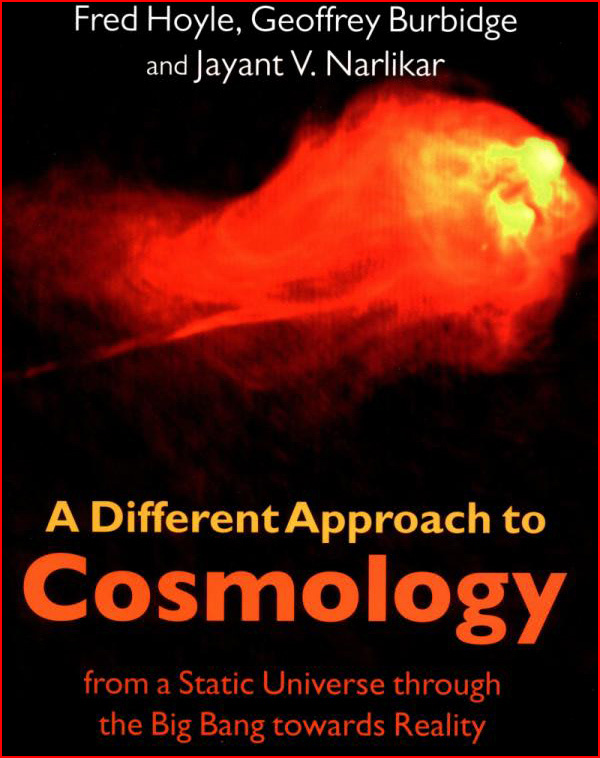|
|
||
 Credit: Cover from Hoyle, Burbidge and Narlikar's 2002 Book |
||
|
pic of the day Links:
Society for
|
Aug 31, 2004 Hoyle, Burbidge and Narlikar published a book in 2002 against the big bang. Unfortunately, the Quasi-Steady-State-Cosmology (QSSC), which they propose as an alternative, is based on the same faulty assumption as the big bang--that redshift can be used as a measure of distance. They devote one section of their book to quasars as the exception to that rule. This section covers the observational evidence that quasars are found together with active galaxies in spite of their redshift incompatibility. The last chapter of the book is most fascinating to a pioneering astronomer. Here they discuss three major issues that standard cosmology has never explained quantitatively. In simpler words, the math doesn't match what the observations demand. The first problem is angular momentum. Everything in space seems to spin, although it's not clear why. But some objects, like our Sun, don't spin as fast as they should. And other objects, like the giant planets Jupiter and Saturn, spin too fast. The second problem is magnetic fields. They are found almost everywhere, but standard theory doesn't understand what makes them. Plasma cosmologist Alfvén explains that the problem is with astronomers' shortsightedness. Magnetic fields are never found without electric currents. Even the fields of bar magnets are created by currents within their atomic structure. So as long as astronomers refuse to accept the existence of electric currents in space, they will never understand the origins of the magnetic fields they see. The third problem is quantized redshift. Not only QSOs but also low-redshift galaxies display a preference for certain values of redshift. This throws a monkey wrench into both the big bang theory and Hoyle¹s QSSC, although big bang theorists try to moot the question by declaring it to be the "surprising new structure" of unobservable dark matter. The authors ended this chapter
and the book with good advice for all: "If nothing else, we hope that
we have made both theorists and |
|
|
Copyright 2004: thunderbolts.info |
||
